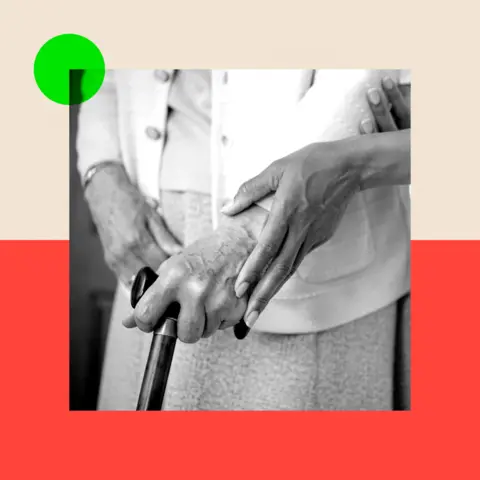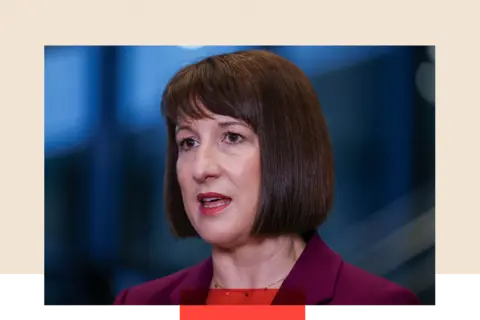İçindekiler
Bu içerik, İngiltere’de yaşlı ve engelli insanlara günlük işlerinde yardımcı olan sosyal bakım sistemine odaklanmaktadır. Labour Partisi’nin vaat ettiği Ulusal Bakım Hizmeti planına dair belirsizlikler ve hükümetin sosyal bakım konusundaki çıkmazı ele alınmaktadır. Sağlık Bakanı Wes Streeting’in NHS krizini çözmeden önce sosyal bakım sistemini iyileştirmenin gerekliliğini vurguladığı belirtilmektedir. Ancak Hazine’nin maliyet konusunda endişeli olduğu ve Başbakan’ın nasıl ilerlemek istediğine dair henüz bir karar vermediği ifade edilmektedir. Çeşitli seçenekler ve olası çözümler üzerine yapılan görüşmelerde, maliyet ve politik destek konularının belirsizliği vurgulanmaktadır. Mevcut durumun önemine rağmen, çözümün pahalı olacağı ve politik bir destek gerektireceği belirtilmektedir. Ayrıca, siyasi partilerin gelecek seçimde seçmenlerden daha fazla vergi ödemelerini istemeye istekli olup olmayacakları da ele alınmaktadır. Sonuç olarak, hükümetin sosyal bakım konusundaki belirsizlikleri ve zorlukları aşmaya çalıştığı ancak maliyet ve politik destek konularında çıkmaza girdiği vurgulanmaktadır. Bu içerikte, kaynak “kararsızlık” suçlamasını reddederek doğru hamleleri belirlemek için zaman gerektiğini belirtiyor. Bakanlar arasında acı bir ayrılığın olmadığına dair bir öneri bulunmuyor. Ancak süreci bilen başka bir kaynak, seçimin ardından aynı eski durgunluğa geri döndüklerini belirtiyor. Bakın: Sağlık Bakanlığı lütfen diyor, Hazine hayır diyor ve 10 Numara daha fazla düşünme zamanı istiyor. Bakım sektörü içindeki bir lider, değişiklik ihtiyacının acil olduğu bir sırada hükümetin farklı bölümleri arasındaki tartışmadan “yıpranmış” olduğunu söylüyor. Başka bir bakım kaynağı, “artık neredeyse çok geç” olduğunu belirtiyor ve sektörün bugüne kadar nasıl muamele edildiğinden rahatsız. Mevcut hükümet planlarının ve Bütçe kararlarının hayatı daha da zorlaştırdığını söylüyor. Bakım sağlayıcılarından işverenlerin ulusal sigorta maliyetlerinin ek maliyetlerini ödemesini istemek, etkili bir şekilde “kamu hizmetlerinin (tahmin ettiğiniz gibi) kamu hizmetlerindeki bir kara deliği ödemek” anlamına geliyor, diyorlar. NHS kendisi bu artan maliyetlerden muaf olacak ancak şu anki duruma göre, kamu hizmeti sunan bazı bakım derneklerini de içeren kar amacı gütmeyen kuruluşlar ödemek zorunda kalacak. Bir grup, artan ödemelerin 1 milyar poundu aşabileceğini belirterek, Sağlayıcılar Birliği adlı bir temel kampanyanın bir parçası olarak şansölyeye mektup yazdı. Onlara göre, değişikliklere tekrar bakmaları veya “Britanya genelinde topluluk bakım hizmetlerinin sistematik bir çöküşüyle karşı karşıya kalacaklarını” belirtti. Bütçe sonrası bize verilen bir röportajda şansölye, belirli sektörlerden gelen yalvarmalardan etkilenmediklerini söyledi, ancak tüm politikayı tersine çevirme şansı yok. Daha fazla Ulusal Sigorta ücreti talebinin yanı sıra, bakanlar bakım personeli için ücret ve koşulları iyileştirmek için bir müzakere organı oluşturuyorlar. Endüstri genel olarak bu hedefi destekliyor olsa da, maliyetleri artıracak ve birçok kişi ek finansman olmadan bunu kapsayamayacaklarına inanıyor. Hükümetin en kırılgan yetişkinlere bakım sistemini uzun vadeli olarak nasıl düzelteceği konusunda konuşmaya devam etmek için açık bir isteği var. Ancak, bir kaynak yorgun bir şekilde bana sektördeki konuşmanın “şu anki acil finansman krizleri tarafından bu kadar belirlendiğini ve [uzun vadeli reformun] ikinci sıra olduğunu” söyledi. Başbakan, Streeting ve Reeves bir hafta veya daha sonra sosyal bakım konusunda ne yapacaklarını düşünmek için oturduklarında, ani bir aydınlanma veya parlak yeni bir plan beklemeyin. Bir kaynak bana – Yes Minister dizisine layık bir satırda – üçlünün “karar vermeye, karar verme kararına, karar verme kararına karar verme” ihtimali olduğunu söyledi. Ancak baskı onları bir karara varmaya zorluyor. Muhafazakarlar sisteme büyük değişiklikler yapma sözü verdi ancak başarısız oldular, yeni cesaretlenen Liberal Demokratlar ise sosyal bakımı seçim kampanyalarının merkezine koydu. Bu parti için imza niteliğinde bir konu ve her gün politik bir fırsatı kovalamadan geçmiyorlar. Yarınki programımda bana katılacak olan Lib Dem lideri Sir Ed Davey, herhangi bir NHS yatırımının sosyal bakım reformu olmadan “pahalı bir başarısızlık” olacağını söyledi. “Bakanların hızla bir anlayış kazanmaları gerekiyor,” dedi. “Kampanya yürüttüğümüz çok parti görüşmeleri şimdi başlamalı, ancak hükümetin yapması gereken acil eylemler gibi, bakım çalışanları için daha yüksek asgari ücret gibi,” dedi. Hükümetin sosyal bakım için bir çözümün çok geciktiğini kimse inkar etmiyor. Hükümetteki azınlıkların hasta bırakıldığını, ailelerin ihtiyaç duydukları desteği almadıklarını inkar edecek kimse yok. Ve hükümette çok az kişi, NHS’i ek milyarlarla destekleme ve reform vaat etme konusunda sosyal bakım için aynısını yapmadan bahsedebileceğine inanmıyor. Yine de kimse geçmiş hükümetlerin desenini tekrar etmek istemez, burada planlar yapıldı, halka sunuldu, sonra terkedildi. Bu sefer, kaynaklardan biri, “her şeyi açık gözlerle yapmamız gerektiğini” söyledi. BBC InDepth, en iyi gazetecilerimizin analiz ve uzmanlığını içeren en iyi içeriklerin yeni evi olarak web sitesinde ve uygulamada yer alıyor. Farklı bir marka altında size varsayımları sorgulayan taze bakış açıları sunacağız ve karmaşık bir dünyayı anlamanıza yardımcı olmak için en büyük konular üzerine derinlemesine raporlama yapacağız. Ayrıca BBC Sounds ve iPlayer’dan düşündürücü içerikleri de sergileyeceğiz. Küçük başlıyoruz ama büyük düşünüyoruz ve ne düşündüğünüzü bilmek istiyoruz – geri bildiriminizi göndermek için aşağıdaki düğmeye tıklayabilirsiniz. Bu içerikte, içerik açıklaması oluşturulması gerekmektedir. İçeriğin konusu ve ana teması belirtilerek, içeriğin kapsamı ve amacı hakkında bilgi verilmelidir. Ayrıca içeriğin hedef kitlesi ve sunulan bilgilerin faydaları da açıklanmalıdır. Bu sayede okuyucular içeriği daha iyi anlayabilir ve içeriğin değeri hakkında daha net bir fikir sahibi olabilirler. Bu içerik, içerik açıklaması oluşturma konusunda bir örnektir. İçerik açıklaması, bir metnin, bir ürünün veya bir hizmetin özetini veren ve potansiyel okuyucuların veya müşterilerin ilgisini çeken bilgiler içermelidir. Bu örnekte, içerik açıklaması oluşturma işlemi nasıl yapıldığına dair bir örnek verilmiştir. Bu sayede okuyucuların içeriği daha iyi anlamaları ve ilgilerini çekici bulmaları sağlanmıştır.
[ad 1]
Kaynak: www.bbc.com









Yorumlar kapalı.